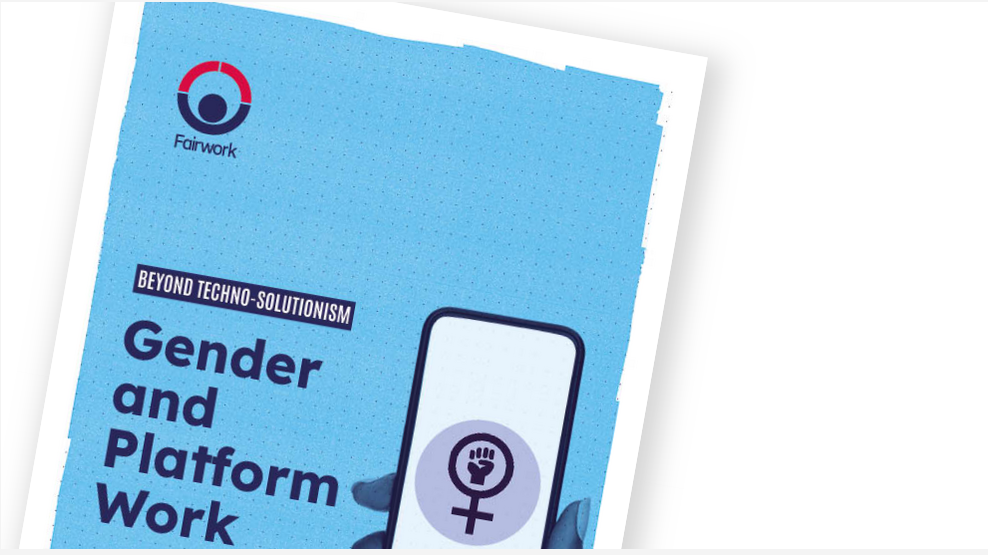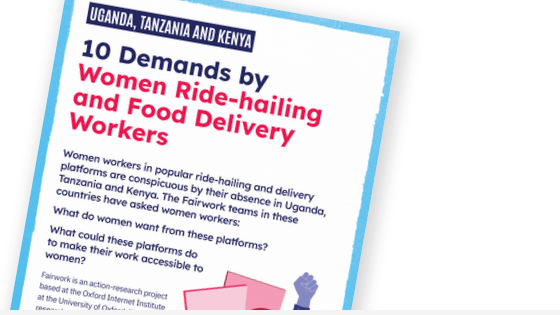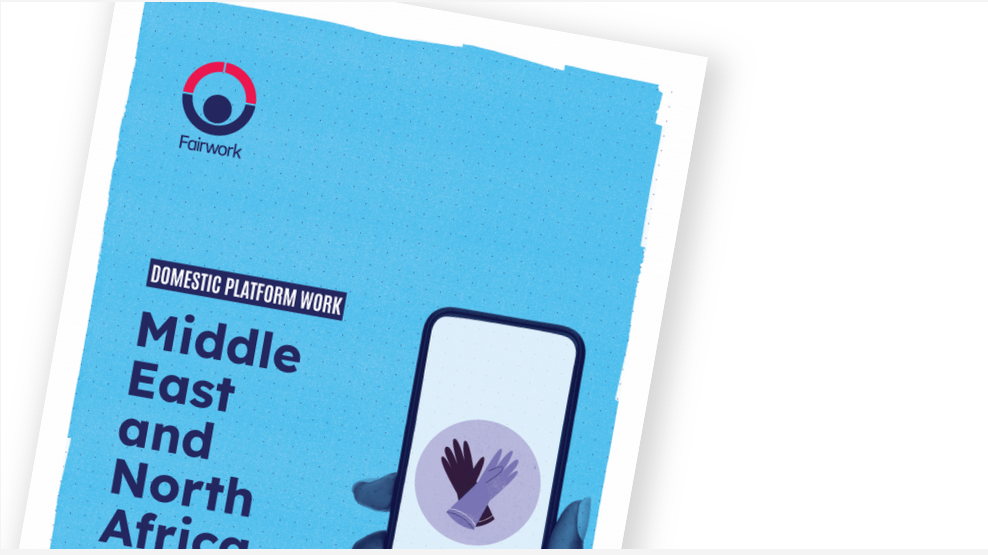Gender
Gender and Platform Work: Beyond Techno-solutionism

This report draws on the past four years of findings from the Fairwork project to shed light on gendered experiences in location-based platform work. The report is based on Fairwork’s research conducted across 38 countries and with over 190 digital platforms, most of which work across multiple countries.
It finds that commonplace practices in the platform economy, such as failing to guarantee a living wage, unsafe working conditions, and inadequately tackling gender-based discrimination, risk widening the gender pay gap, reducing workforce participation rates, and cementing gender inequities.
The report concludes that platforms need to be more responsive to women and gender minorities and that the tech-based solutions they are deploying are not protecting women workers. It explains how the five Fairwork principles can improve gender equity in gig work and provides a series of policy recommendations that can bring about better conditions and create more inclusive working environments.
Report launch: Gender and Platform Work
10 Demands by Women Ride-hailing and Food Delivery Workers in Uganda, Tanzania and Kenya

Women workers in popular ride-hailing and delivery platforms are conspicuous by their absence in Uganda, Tanzania and Kenya. The Fairwork teams in these countries have asked women workers:
What do women want from these platforms?
What could these platforms do to make their work accessible to women?
Domestic Work in the Middle East and North Africa

This report provides an overview of the domestic service sector in the Middle East and North Africa (MENA) region and identifies challenges and problems regarding the working and living conditions of domestic workers, with a focus on specific challenges for women and migrants in this sector of the economy.
By attempting to answer the question: “Can the introduction of digital labour platforms improve working conditions in the domestic work sector?”, this study provides an analysis of the socio-economic context for this work and describes the development of digital labour platforms and their impact on employment and working conditions in the sector.
By shedding light on these conditions within a highly invisible and informal sector, the study aims at impacting policy and platform managers.